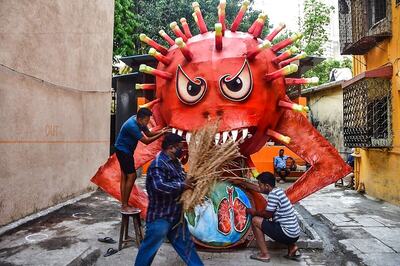
views
Earlier this year, a team of international researchers warned that dengue, chikungunya, zika, malaria and other mosquito-borne diseases would pose a threat to 49 percent of the world’s population. With no specific treatment available, communities across the world have long depended on various measures for protection from mosquitoes to keep these potentially-lethal mosquito-borne diseases under check.
One estimate, cited by the World Health Organization, indicates 390 million dengue infections per year, of which 96 million manifests clinically. Another study, also cited by the global health body, estimates that 3.9 billion people, in 128 countries, are at the risk of contracting dengue infections.
The reported dengue cases increased from 2.2 million in 2010 to over 3.34 million in 2016 and the numbers are only expected to go up due to climate changes and other factors.
So are traditional mosquito-curbing methods like chemical spraying past their expiry date?
Professor Scott O’Neill, a microbiologist and the director of the World Mosquito Program, a non-profit organization fighting for the eradication of mosquito-borne diseases, certainly thinks so.
“You have to only spend a short amount of time in any growing, tropical, large city and imagine that you're going to have to find all the pools of water where mosquitoes are breeding, and you can understand the enormity of it and how impossible it is to try to remove them all,” Asia News Network quoted O’Neill as saying in a recent report.
"What we know is that the mosquitoes that transmit dengue are progressively getting more and more resistant to the chemicals they use for control. Eventually very few of those chemicals are going to work very well anymore,” he reckons.
Instead, O’Neill believes, the World Mosquito Program’s strategy of relying on a bacteria called Wolbachia that’s found naturally in 60 percent of insect species could provide an alternative.
Scientists have found that when the Wolbachia is introduced into the Aedes aegypti, the primary mosquito that transmits dengue, it prevents the dengue virus from being able to replicate and grow.
That means fewer chances of the mosquito passing the dengue virus to humans.
“The World Mosquito Program seeds a local area by releasing lab-raised mosquitos that have been given the Wolbachia bacteria,” according to the report.
“We don't operate under the assumption that just because scientists think the intervention is good that communities should just accept it,” said O’Neill.
“And if communities are not wanting, even if the government has approved it, then we don't deploy,” he added.
The program has already shown remarkable results in northern Australia, where Wolbachia- infected mosquitoes have reduced transmission of dengue by about 98 percent since 2011.
The largest World Mosquito Program project is currently underway in Indonesia’s Yogyakarta city.
"It's probably the largest mosquito-based clinical trial for dengue that's ever been done," said O’Neill.
The World Mosquito Program, working in tandem with Gadjah Mada University, has divided the city into 24 square kilometer clusters, 12 of which have received the Wolbachia-treated mosquitos.
When the people in a cluster report to clinics and hospitals with a fever, they’re tested for dengue and made part of the study.
Patients who test negative for dengue are placed in the control group. Those who are detected with dengue are placed in the intervention group and tracked to see if they live in a treated or untreated area of the city.
Although the results of this blind study aren’t expected until the end of 2020, a simple comparison of one area of the city with Wolbachia mosquitoes to another area without those mosquitoes, suggests the intervention has led to an 80 percent reduction in dengue transmission.
“We have put the intervention to over 3 million people and our goal in the next 5 years is to expand that to be over 100 million people,” said O’Neill.




















Comments
0 comment